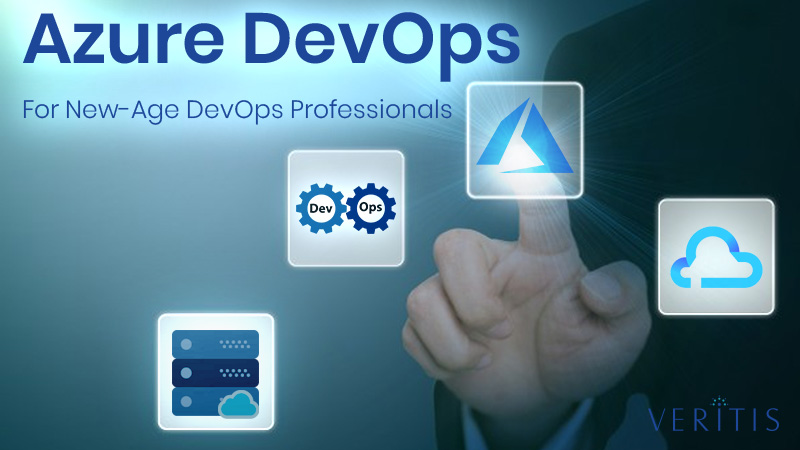
In an important breakthrough for DevOps implementation, Microsoft unveiled a broad range of DevOps services for its cloud platform Azure.
The new Azure DevOps services are essentially useful as they ease organizational approach to application development and deployment processes.
These Azure DevOps best practices eliminate the need and time consumed to setup up traditional underlying infrastructure.
Upgraded & Compact Azure DevOps Services
The all new Azure DevOps is a more futuristic version of our favorite Visual Studio Team Services (VSTS). The new services on the platform encompasses the entire suite of services required throughout the development lifecycle for faster, qualitative software deployment.
New Azure DevOps includes:
Azure Pipelines: Azure Pipelines lets DevOps professionals continuously build, test and deploy software to any platform or cloud. The service provisions user access to cloud-hosted pipelines for Linux, macOS & Windows platforms with ample of work time at hand and the flexibility to perform 10 parallel open-source jobs. Some of the already-available open source projects that use Azure CI/CD pipelines include Atom, CPython, Pipenv, Tox, Visual Studio Code and TypeScript.
Additional features include:
- Working on programming infrastructure like Python and Java, and simultaneously testing builds on Linux, MacOS and Windows platforms
- Ease in building & pushing images to container registries like Docker Hub & Azure Container Registry and further deploying these containers to individual hosts
- Exploring and implementing a wide range of collaboratively-built builds, tests and deployment tasks alongside access to innumerable extensions from Slack to SonarCloud
- Freedom to continuously deliver software to any cloud platform
- Making most of the easy build chaining and multi-phased build features with support for YAML and test integration
Azure Boards: Track work status/progress with Azure Boards including Kanban boards, backlogs, team dashboards and custom reporting. This Azure service gives your ideas the perfect platform by letting users combine drag-and-drop sprint planning and flexible work-item tracing.
Additional features include:
- Keeping a track of your ideas at every development stage and keeping your team updated with all the code changes linked to your work items
- Being scrum-ready by using built-in scrum boards and planning tools to help your teams run quick sprints and planning meetings.
- Usage of smart analytical tools and dashboard widgets to know the progress and status of your projects
Azure Artifacts: Azure Artifacts lets users create and share Maven, npm & NuGet package feeds through public and private sources. Additionally, it lets the creator add fully-integrated package management to a CI/CD delivery pipeline with a single click.
Additional features include:
- Easy sharing of code with teammates in a small team or across large organizations
- Universal artifact management for Maven, npm & NuGet
- Adding packages to any pipeline
Azure Repos: Repos gives users access to free private Git repositories and also lets them pull requests and search code. The service gives users access to unlimited private repository support and hosting for TFVC that encompasses a small project to a big-sized repository.
Additional features include:
- Secure connecting and pushing code into your Git repository from any source, including an editor and client
- Adding and building validations and extensions from the marketplace or on their own with the help of web hooks and REST APIs
- Quick finding of code with ‘code-aware’ search that has the knowledge of classes and variables
Azure Test Plans: Test Plans planned and exploratory testing solutions let users improve code quality
Additional features include:
- Capturing rich scenario data during test-execution to correct any glitches
- Testing applications by conducting tests on desktops or web apps
- Making the most of the end-to-end traceability for qualitative stories and features
Referring to this development, Azure Project Management Director Jaimie Cool elaborates the experience of working with Azure DevOps cloud tools. He says it becomes easier for organizations to engage in DevOps processes using tooling available in the cloud. Microsoft envisions the incorporation of Machine Learning in DevOps, to further enhance the DevOps experience.
As per the new announcement, VSTS users will be automatically upgraded into the all new Azure DevOps environment. Organizations using VSTS’s Team Foundation Server (TFS) will continue to receive updates with the ‘new’ features.
With a suite of comprehensive services and their features, Azure DevOps is all set to elevate the DevOps experience. Making it more of a creative approach rather than just a coding job for users.